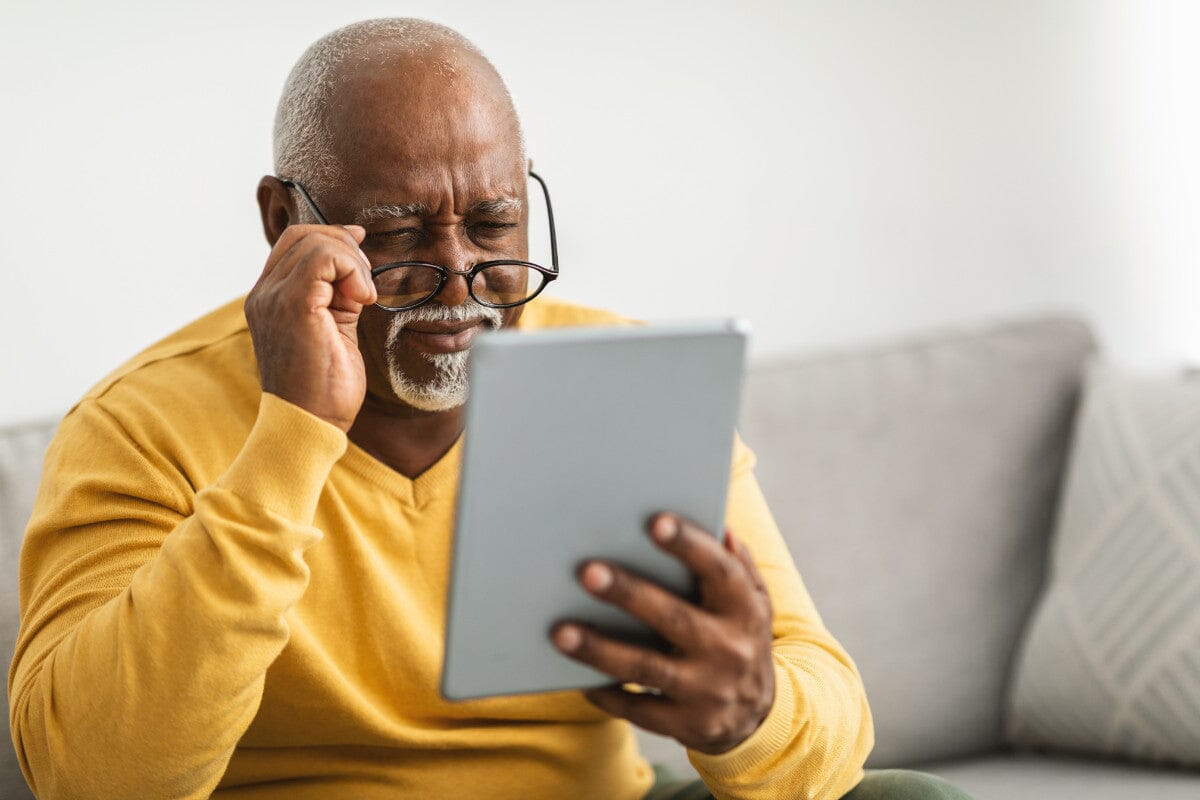Your Cart is Empty
FREE SHIPPING OVER $45 & RETURNLESS REFUNDS

Our eyesight starts to slowly decline in our 40s or 50s, affecting our ability to see clearly and at close distances. This isn't necessarily due to anything we do, it's just another natural part of aging. What happens is the lenses in our eyes become less flexible making it more difficult to focus on close-up objects, impairing our ability to distinguish colors, and making us need more time to adjust to changing levels of light.
Age-related macular degeneration (AMD) is the leading cause of vision loss in people over 65. It affects the central vision and your ability to see fine details. In the advanced stages of AMD, people can lose their ability to drive, see faces, and read small print.
You're more likely to develop AMD if you have a family history of AMD, you smoke, or you have high blood pressure.
Other common vision problems include cataracts, glaucoma, and diabetic retinopathy.
Even though our eyes naturally change as we get older, there are still some things we can do to help take care of our eyesight and promote good eye health.
Proper nutrition plays a crucial role in maintaining good eye health. Include foods in your diet that are rich in Vitamins A, C, and E and omega-3 fatty acids. Leafy green vegetables, carrots, sweet potatoes, citrus fruits, nuts, seeds, and fatty fish like salmon and tuna are excellent choices.
These nutrients are known to support eye health and protect against age-related eye conditions such as cataracts and macular degeneration.
Regular comprehensive eye exams are essential for maintaining good eye health. Eye exams can detect any potential issues early on, allowing for prompt treatment and preventing further damage.
Make sure to visit your eye care professional regularly, especially if you have a family history of eye conditions or notice any changes in your vision.
Let us know what topics you're interested in, and we'll do our best to include them in future blogs! Email us at info@toneshealth.com